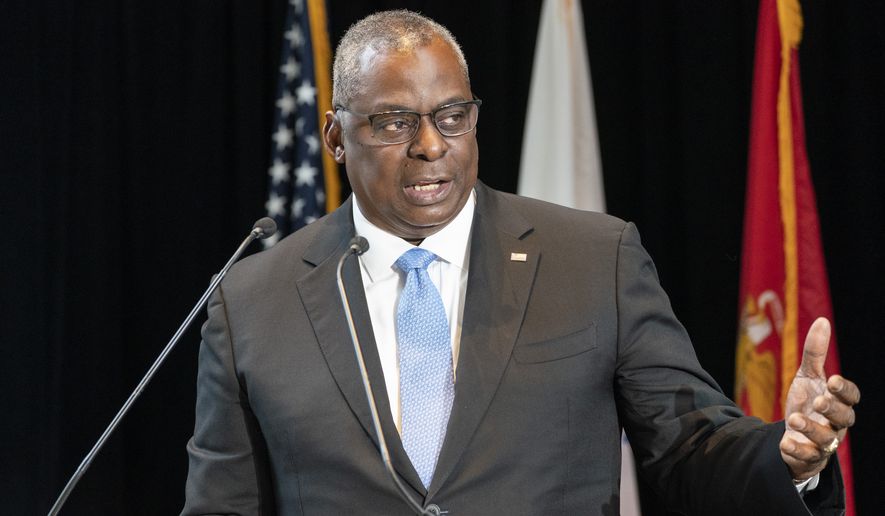Secretary of Defense Lloyd Austin spoke with his Russian counterpart Friday morning, his first telephone call with Defense Minister Sergei Shoigu since May and the second since Russia’s invasion of neighboring Ukraine in late February.
Pentagon officials said in a terse readout of the conversation that Mr. Austin, who initiated the call, emphasized the importance of maintaining lines of communication between Washington and Moscow amid the ongoing war in Ukraine. The U.S. has strongly backed Kyiv with weapons and aid as Russia struggles to keep its faltering invasion on track.
“We welcome maintaining open lines of communication. Dialogue is good here,” deputy press secretary Sabrina Singh told reporters in the Pentagon.
She declined to offer specific details about the telephone call but said Mr. Austin wanted to emphasize how important it was that both sides continue talking.
“He has been very vocal about the war and the United States’ commitment to continuing to provide Ukraine what it needs,” Ms. Singh said.
Russia’s defense ministry also issued a statement about the telephone call, saying the men discussed “current issues of international security, including the situation in Ukraine.”
Mr. Austin also spoke Friday with Oleksii Reznikov, Ukraine’s defense minister. Unlike with the Russian military chief, Mr. Austin and Mr. Reznikov speak regularly on a range of issues.
“One of these is assessing what the Ukrainians need on the battlefield,” Ms. Singh said.
Mr. Austin also noted the international community’s continued support in building Ukraine’s future strength and safeguarding Kyiv’s ability to defend itself in the future, Pentagon officials said.
“The two leaders pledged to remain in close contact,” a Department of Defense spokesman said.
The calls came as Ukrainian forces reported more progress in the east and south of the country against positions held by Russian and Ukrainian separatist forces.
The Associated Press reported that Ukrainian forces bombarded Russian positions in the southern Kherson region, targeting resupply routes across a major river while inching closer to a full-on assault on one of the first urban areas Russia captured in the weeks after the Feb. 24 invasion.
Russian-installed officials were reported desperately trying to turn the city of Kherson, a prime objective for both sides because of its key industries and major river and sea port, into a fortress while attempting to evacuate tens of thousands of residents, the wire service reported, including deploying some 2,000 recent draftees to the region.
• Mike Glenn can be reached at mglenn@washingtontimes.com.




Please read our comment policy before commenting.